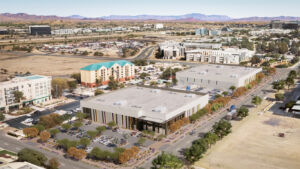Securing a home loan can be challenging, especially when comparing the unique financial landscapes of urban and regional areas. Homebuyers in cities and rural locations often face distinct hurdles, from property prices to lender preferences and loan structures. Understanding these differences is critical, and this is where the expertise of a mortgage broker comes into play.
LEARN MORE: Read the latest real estate news here
Whether you’re purchasing a property in the bustling city or a serene rural community, a broker’s role is to match your financial needs with the best available options. For instance, a mortgage broker in Sydney will have a deep understanding of the city’s competitive property market, while brokers specializing in regional areas focus on navigating challenges specific to rural lending.
Key Differences Between Urban and Regional Home Loans
Urban and regional home loans vary significantly in terms of borrowing criteria, property valuations, and lending policies. Here are some of the most important distinctions:
1. Property Prices and Loan Sizes
- Urban Areas: Cities like Sydney, Melbourne, and Brisbane have high property prices, which often require larger loans. Lenders may offer more competitive rates and features for urban properties, given their higher demand and strong market stability.
- Regional Areas: In contrast, rural properties tend to have lower purchase prices. While this reduces the loan amount required, it can also make lenders more cautious, as regional properties may carry higher market volatility or slower growth rates.
2. Lender Preferences
- Urban properties are often considered safer investments by lenders due to their strong demand and resale potential.
- Regional properties may face stricter lending criteria, as lenders consider factors such as the local economy, population trends, and distance from major urban centers.
3. Loan-to-Value Ratio (LVR) Requirements
- Urban borrowers often qualify for higher LVRs, meaning they can borrow a greater percentage of the property’s value.
- In regional areas, lenders might cap LVRs at lower levels (e.g., 70–80%), requiring borrowers to contribute a larger deposit.
4. Special Considerations for Rural Properties
Properties in regional areas may include farms, large parcels of land, or mixed-use zoning. These factors can complicate valuations and loan approvals. A broker with experience in rural lending understands how to address these challenges.
The Role of Mortgage Brokers in Urban Lending
Urban mortgage brokers specialize in navigating competitive housing markets. Their expertise lies in understanding the nuances of city-specific lending policies and helping clients secure favorable loan terms. Key services include:
- Access to Competitive Rates: Urban brokers often work with a wide range of lenders, including major banks and non-bank institutions. They can identify lenders offering the most competitive rates for high-value properties.
- Tailored Loan Structures: In cities like Sydney, brokers frequently recommend split loans, offset accounts, or fixed-rate options to help borrowers manage large loan amounts effectively.
- Fast Approvals: Given the fast-paced nature of urban property markets, a mortgage broker in Sydney can expedite the loan approval process, ensuring you’re ready to act quickly on desirable properties.
The Role of Mortgage Brokers in Regional Lending
For buyers in rural or regional areas, mortgage brokers play a vital role in navigating the unique challenges of these markets. Their services often include:
- Overcoming Lending Restrictions: Regional brokers understand the stricter criteria lenders may impose on rural properties. They can help present a strong case to lenders, ensuring clients meet eligibility requirements.
- Finding Specialized Lenders: Some lenders specialize in rural or agricultural properties. Regional brokers have the industry connections to match clients with these niche lenders.
- Understanding Zoning and Property Types: Brokers familiar with rural areas are well-versed in dealing with properties that have unique zoning or usage restrictions, which can impact loan approval.
Urban vs. Regional: How to Choose the Right Broker
Selecting a broker with expertise in your target market—urban or regional—is crucial. Here are some tips for making the right choice:
1. Evaluate Their Experience
- Urban: Look for brokers with a track record in high-demand markets and a deep understanding of city-specific loan products.
- Regional: Choose a broker with experience in rural lending and familiarity with local economic conditions.
2. Check Their Lender Network
Brokers with access to a diverse panel of lenders, including those specializing in rural properties, are better positioned to find the right loan for regional buyers.
3. Consider Their Local Knowledge
- Urban brokers should have insights into city-specific trends, such as up-and-coming suburbs or development hotspots.
- Regional brokers should be familiar with the challenges of rural property valuations and zoning requirements.
Final Thoughts
Whether you’re buying in a vibrant city like Sydney or a quiet rural community, a mortgage broker’s expertise can simplify the home loan process and increase your chances of securing the best deal. Urban brokers excel in navigating high-stakes markets, while regional brokers specialize in addressing the unique challenges of rural lending.
For urban buyers, partnering with a mortgage broker in Sydney offers tailored advice and access to competitive rates, ensuring you’re well-equipped to succeed in the fast-paced property market. Meanwhile, regional buyers can benefit from a broker’s ability to navigate stricter lending policies and specialized loan products. By choosing a broker who understands your market, you’ll be one step closer to securing your dream home, no matter where it’s located.




